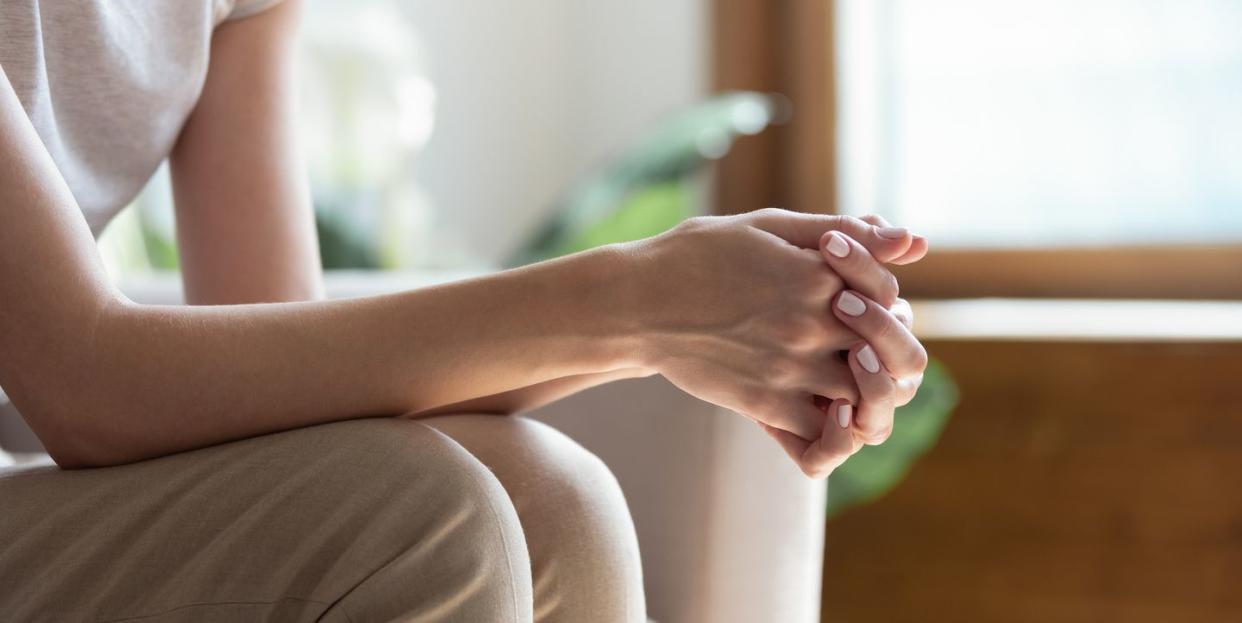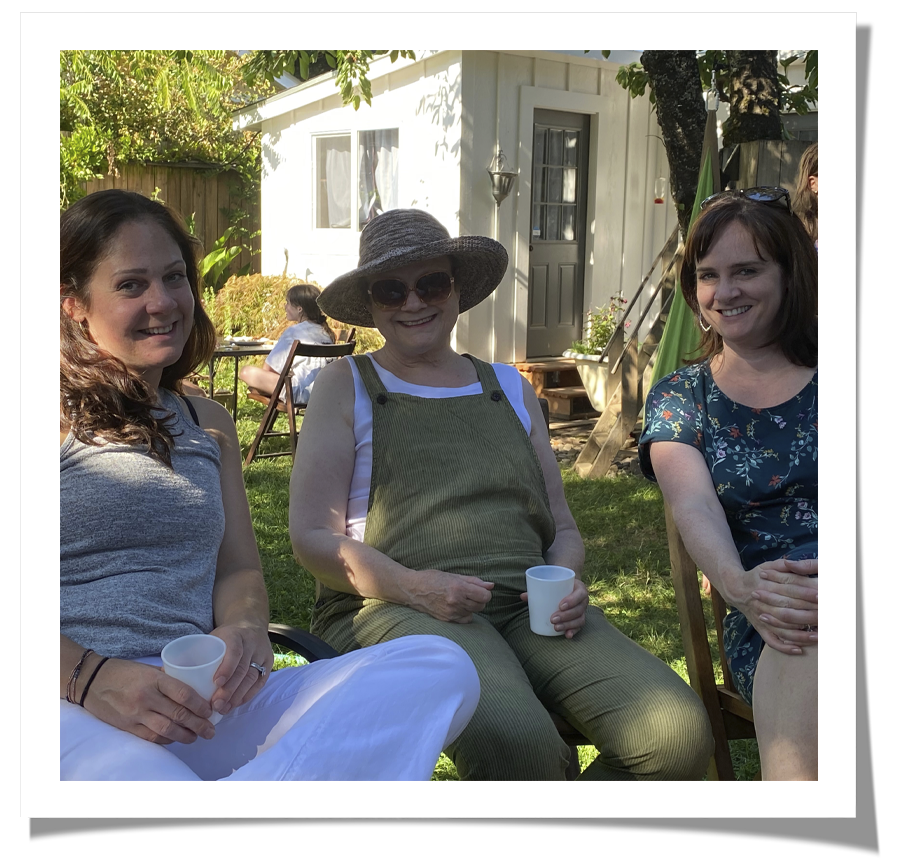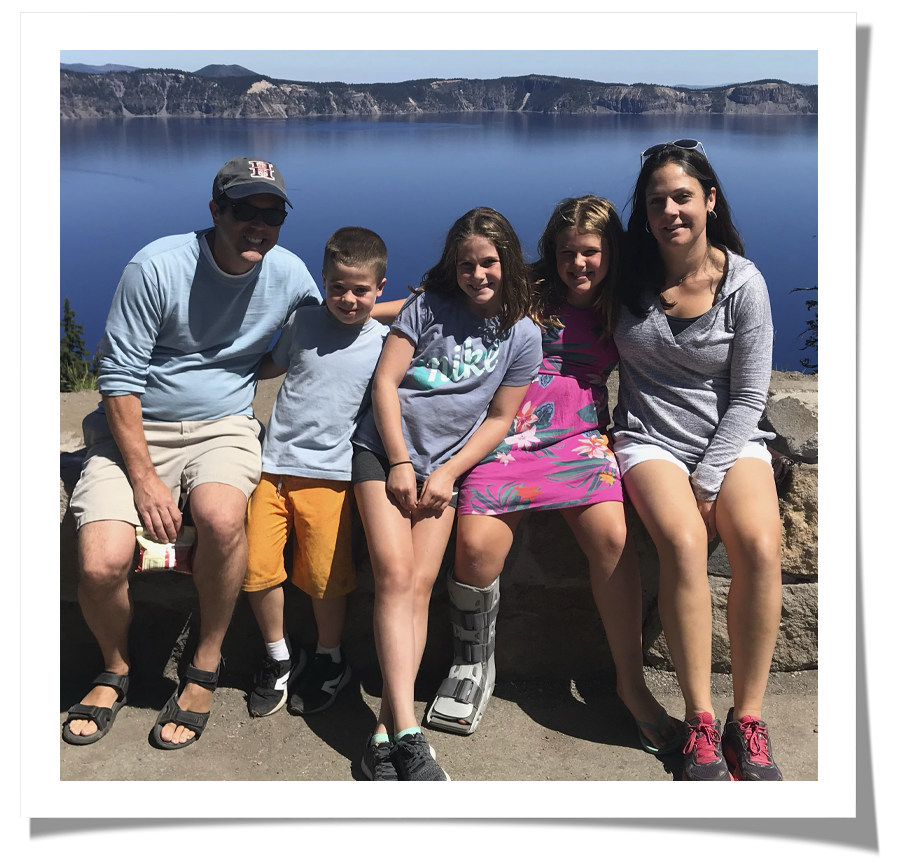After Finding a Lump in My Breast, I Feared I Had Cancer, But My Doctor Didn't Believe Me

Breast cancer has always been a shadow in my family, lurking in the health histories of the women I love. My grandmother was diagnosed at 40. Then, it came for my mother. Then me, just a few weeks after my mom was diagnosed, although we didn’t know it for another six months; my sister was diagnosed eight years later. I was 35 and had just gone back to work after struggling to find a position in the town we’d just moved to and childcare for my three kids under six.

Despite the high likelihood that I would be a third-generation breast cancer patient, doctors initially brushed off my concerns. But I had felt a lump in my left breast. My husband felt it, too. My doctor didn’t, and I was sent home and told me not to worry, without ordering my first mammogram; I was too young. Maybe it was all in my head, I thought. Maybe my doctor was right—was the worry and panic I had for my mother was causing me to freak out over nothing?
But then the lump began to swell and ache. I went to a different doctor, but all that was said was, “Cancer isn’t painful, so this isn’t cancer.” There was no order for a mammogram or any other tests, and I was told to come back in six weeks if it was still bothering me.
I was part of a continuing epidemic of doctors not believing women about our own bodies, and the impact historical misogyny has on both our health and economic outlook. Missed cancer diagnoses represent 46% of primary care diagnostic errors, according to a 2019 study. Three-quarters of those missed diagnoses involved a doctor’s error in judgment, like delaying follow-up screening or failing to order it at all. There are far too many cases like mine.
By six weeks after seeing that second doctor, it was impossible to ignore that something was wrong. I was in pain, and my entire left breast was swollen. I demanded testing. The tests came back quickly, but I didn’t need to see the results. The look on the technician's face said it all: breast cancer. After many more tests, it was determined to be stage 3. Stage 4 is the least likely to be survivable; stage 2 is almost always survivable, which means stage 3 is “we’ll see.” I still often think about what if I’d been diagnosed when I first went to a doctor, rather than at a later, more severe stage, when the treatment wouldn’t have had such a huge toll on my health and my ability to work and raise my kids.

After my diagnosis, I had a round of chemo, a double mastectomy, then another round of chemo, followed by five weeks of radiation. To get the best care with the most advanced radiation machines, I had to drive two hours each way into the city, every day, for five weeks. I had been at my job less than four months when I started treatment, so I wasn’t eligible for short-term disability or family and medical leave (FMLA). I needed the health insurance to afford my treatments, so I had to show up for work, bald and sapped of energy.
And yet, as unlucky as I felt, I still knew that in this country, I was privileged to have health insurance so my cancer didn’t bankrupt my young family, to live within driving distance of a top-notch medical facility and have a car to get me there, and to have the type of job, and employer, where I could work on my laptop from the chemo infusion room. Given the uncompassionate healthcare policies in this country, I know that far too many women have to make impossible choices with fewer options. Many women risk financial ruin, in addition to threats to their wellbeing, due to cancer; one report showed a staggering 43 percent of low-income women diagnosed with breast cancer will lose their jobs after treatment.
The irony is that I was diagnosed in October, the all-pink-everything Breast Cancer Awareness Month. Yet there is still so little awareness of the implications of not believing what women know about our bodies. For all the advocacy and fundraising that we’ve done, it’s gut-wrenching to realize that doctors don’t always take women and our pain seriously, the women who feel a lump and know something isn’t right. In a recent study, more than a quarter of women said a health care provider ignored or dismissed their symptoms, with 31 percent saying they felt like they needed to “prove” their symptoms to the doctor; 25 percent reporting that they’ve experienced a health care provider not taking their pain seriously. For all the PSAs—get mammograms! do self exams!—we’ve entered dangerous territory of assuming that if a woman winds up with a late-stage diagnosis, it’s her fault. Our healthcare system puts the burden all on the patient to manage and advocate for our care.

My advice? If your doctor isn’t taking your concerns seriously, seek out second, third, fourth opinions until you find someone who does. In recent years, some Black women, who are disproportionately dismissed about their pain, have had success by requesting that their doctors document a refusal to order a certain test in their charts. Your doctor may reconsider ordering tests before they’re willing to put that in writing. While it shouldn’t require these tactics to take a woman’s concern seriously, we still have a long way to go to getting doctors to believe our pain. Cancer presents in numerous ways, and we need to bridge the final gap from awareness to action.
Even now—as new aches and pains emerge—I struggle to find doctors who don’t immediately try to discount my fears. What was once “you’re fine – you’re just worried about your mom” has now become “you’re fine – you’re just paranoid about getting cancer again.” Well, yes, of course I am. Because I know how hard it is for women to be believed about our bodies.
You Might Also Like

